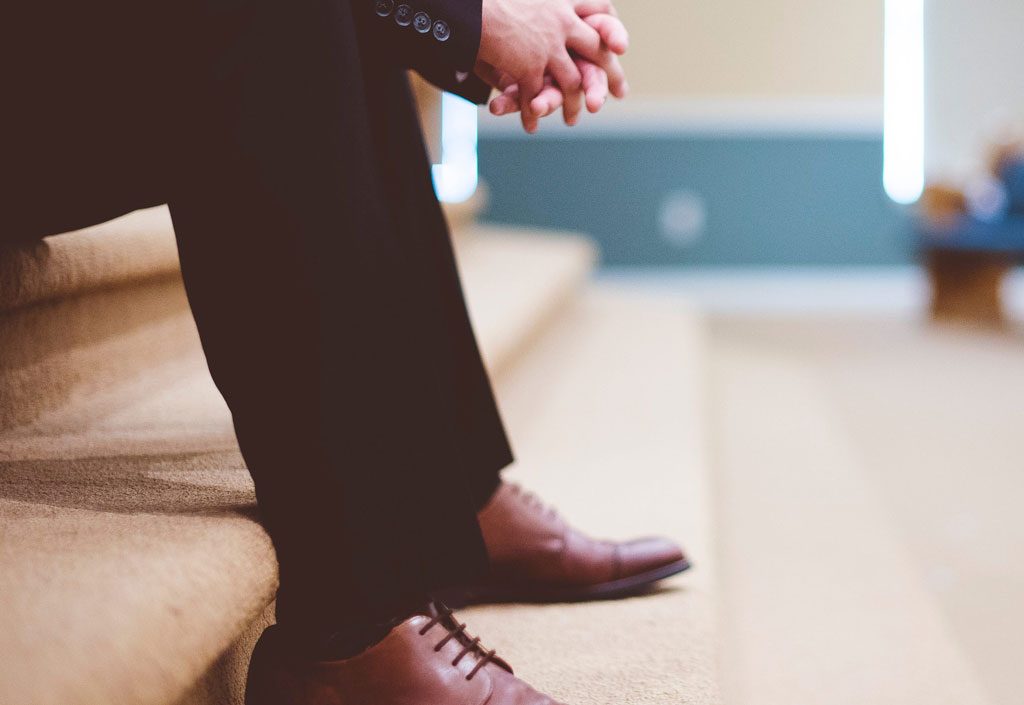The following article by John Dunlap, Esq. will be published in the Memphis Lawyer Magazine, a publication of the Memphis Bar Association.
The Coronavirus and the resulting economic decline leaves many questions for many different businesses in the national and state economies.
While the United States has experienced numerous recessions and depressions throughout its history, it has never dealt with an economic downturn caused by a disease. In Medieval Europe empires were greatly weakened by numerous plagues that ravaged the continent. The plague of the Sixth Century reduced the population and birth rate of the Byzantine Empire to the extent that tax revenues declined, making it impossible to effectively combat invasions from Muslim aggressors.
The only event that is remotely similar to the Coronavirus is the Spanish Flu epidemic and the depression of 1920-1921. Most historians and economists forget that the depression of 1920-1921 was more severe than the Great Depression of the 1930s, even though it only lasted about sixteen months before the economy recovered. Most economists believe that the Spanish Flu had little, if anything, to do with the economic downturn of the early 1920s.
Our office has been assisting businesses under financial distress restructure their debt and reenter the economy since 1989. While we have numerous successful reorganizations, not all Chapter 11 cases reach the confirmation stage. This article will examine various businesses and the advantages and disadvantages they face in today’s economic climate. While by no means exhaustive, this list attempts to discuss at least some of businesses affected by today’s economy.
Restaurants: Restaurants have low profit margins and high operating expenses. Many have difficulty surviving in a favorable economic environment. To further complicate matters, restaurants were of the first industries to be ordered closed by local, state, and federal guidelines. The States of Tennessee, Arkansas and Mississippi have relaxed the open container laws to permit restaurants to sell beer, wine and mixed drinks with carryout meals in an effort to ease the loss of income from closures. Virtually all restaurants have implemented curbside service to offset the loss of patrons. In all likelihood, this will not generate enough income to meet their monthly operating expenses. The larger chain restaurants should survive, but many of the privately owned restaurants will not be able to reopen.
Hair Salons: Hair salons normally need a great deal of space and prefer visibility from the road. These factors result in forbiddingly expensive rent. On the other hand, hair salons have modest payrolls due to the fact that the overwhelming majority of stylists either rent space or work on commissions. This business also enjoys an intensely loyal client base. Finally, the space hair salons rent cannot easily or inexpensively converted into other types of business tenants. Since there is a limited number of salons, landlords will have difficulty replacing them and their income. If the salon appears to be a viable business, it could be in the property owner’s best interest to either waive delinquent rent or move it to the end of the lease.
Hair salons are volume businesses that require a constant cash flow, but the fact that they provide a necessary service and benefit from a loyal client base will enable the majority of them to survive.
Healthcare Workers: At first glance, it would seem obvious that medical clinics will have an enormous influx of patients and an increase in income. However, this is not the case when more closely examined. While hospitals will be overwhelmed, many other healthcare providers are experiencing a decline in patients or are closed altogether. The majority of surgical procedures performed in the United States are elective procedures. It has been necessary to reschedule virtually all elective procedures. Our office has numerous clients scheduled for intestinal bypass surgery that have been cancelled indefinitely. Some hospitals and same day surgery centers have laid off surgical assistants and other employees associated with elective procedures.
Once the Coronavirus crisis subsides, healthcare facilities and their employees should recover rapidly.
Commercial Property Owners: Companies that own and rent commercial property will undoubtedly experience an extreme decline if income. Many businesses that have been forced to close will have no income for at least two months and when, and if, they reopen it will take several months to recover. During this period of time the tenants may not be able to pay their rental obligations. The States of Tennessee and Arkansas have prohibited all property owners from filing eviction actions in court or evicting tenants for the months of April and May. Even if the property owners evict tenants who are not paying, replacing there tenants will be arduous at best.
Large shopping malls were already under financial distress due to an increase in online shopping. Most large malls are heavily leveraged and have negative equity in their property. Many of the smaller commercial property owners in Tennessee do not have mortgages on the property, these owners should survive the crisis while those whose property is encumbered by liens may be facing foreclosures and bankruptcies.
Residential Property Owners: Owning and managing residential rental property even in a favorable economy and in affluent neighborhoods is challenging. During an economic downturn the residential rental businesses becomes an unachievable undertaking.
The majority of financial planners recommend paying no more than forty percent of the value of the property in order for it to be a viable investment. I routinely have clients who watch cable TV infomercials and are convinced rental property is the key to financial freedom. I advise clients that unless they can pay six months of mortgage, maintenance, property taxes and insurance without it placing their credit report in jeopardy, they should not invest in residential rental property.
Many tenants have lost their jobs and are unable to pay rent, all courts are closed and property owners are prohibited from evicting tenants. However, the property owner’s mortgages, insurance and property taxes will still be owed. If the economic decline continues, the value of much of this property will decline, resulting in erosion of equity or negative equity.
In the event foreclosures reach record levels as they did in the first decade of the twenty-first century, lenders may have more foreclosed property than they can manage. This could enable property owners to negotiate lower values, lower interest rates and reduced monthly payments through Chapter 11 Reorganizations.
Automobile Mechanics: As vehicles have become more sophisticated, it has been necessary for mechanics to spend more money on diagnostic equipment as well as additional training and training manuals. This increases their operating expenses. However, auto-mechanics seldom have accounts receivable or large amounts of inventory that must be serviced by debt.
There is no question that automobile mechanics, oil changing locations, and tire services will experience a decline in revenue but positive factors such as providing an essential service, manageable payrolls and low inventory costs will ensure that virtually all of them will survive.
Residential Contractors: Residential contractors perform an enormous number of services that will remain open during the coronavirus quarantine. Contractors have high operating margins and have the ability to reduce their workforce promptly. While their insurance obligations are expensive, they have a low debt to asset ratio and a low default rate for accounts receivable. Resident contractors are in a unique position in that the majority of their contracts are generated by personal referrals, resulting in a small percentage of their budget being devoted to advertising.
Contractors may have an advantage because many homeowners will be unable to purchase new homes and will decide to renovate their existing homes. Instead, contractors may experience an increase in income in the months following the coronavirus quarantine.
Gyms and Fitness Centers: Gyms and fitness centers did everything possible to remain open during the coronavirus crisis. Several fitness centers employed additional personnel to wipe down the exercise machines after each use and to clean the entire center with disinfectant each evening. One Center even required their members to wear masks while on the premises. None of these steps prevented all of these facilities from being closed by government orders.
A considerable number of privately owned health clubs and gyms had already been forced to shut down due to their inability to compete with national chains that offer extended hours and lower membership fees. Many of the more vulnerable of these businesses closed before the outbreak of the coronavirus.
These businesses have costly rental obligations and moderate insurance obligations. Because most of the personal trainers and health and wellness therapists are independent contractors who are compensated directly by the members, fitness center payrolls are manageable.
Since the majority of the gyms and fitness centers are national chains, most will survive. Many continue to charge the monthly membership to their members’ credit cards even though they are closed.
Daycare Centers: In Tennessee, Arkansas and Mississippi daycare centers have been allowed to remain open on a limited basis. However, the daycare centers affiliated with private schools remain closed. The majority of daycare centers not affiliated with private schools receive large subsidies from the State of Tennessee. Most daycare centers are still receiving this grant despite the fact that their enrollments have decreased noticeably, how long this will continue is unknown.
While cashflow for most daycare centers is adequate, many are not well managed businesses. Our office has frequently assisted daycare centers negotiate tax liens and civil judgements due to their failure to file tax returns, pay tax returns and to pay suppliers. Some daycare centers that were having difficulties prior to the coronavirus crisis, may not be able to survive in the current environment. However, daycare centers provide a vital service and will continue receiving government subsidies. The daycares affiliated with private schools should have little difficulty remaining open.
Churches: Jesus and the early founders of Christianity never intended for Houses of Prayer to be a business. Yet as their members expanded, church buildings became permanent structures and priests and support staff required financial compensation, churches became businesses.
All churches must fund their buildings through traditional secured mortgages or bond issues. Companies exists that do nothing but provide mortgages for church buildings and issue bonds on behalf of churches. Payroll expenses have also increased drastically. The days of ministers taking the “Oath of Poverty” are gone. For example, a minister in one of the larger churches in Memphis earns over $800,000.00 per year and is provided a private jet.
Church attendance and financial support has fluctuated a great deal since the end of World War II in the United States. Church attendance and membership was extremely high in the closing years of the 1940’s through the middle 1960’s. Church membership began a steady decline in the 1960’s and 1970’s. Church attendance increased during the 1980’s and 1990’s but it was not universal. Large nondenominational churches and evangelical churches thrived while the liberal and moderate denominations such as Episcopal, Lutheran, Methodist and Presbyterian continued to experience declines. Since the beginning of the 21st century church membership has continually declined. The only exception are the Mega Churches in urban areas.
Churches have experienced financial distress already due to zero attendance and no financial support. Our office is representing a church that reported $12,000.00 in offerings in February, but only $128.00 in March. This church’s experience is probably a good indication of what all churches are experiencing.Many of the smaller churches may very well lose their buildings and it will be difficult to continue without a meeting place.
Local Delivery Services: This category includes Uber, Taxi Services, Courier Services as well as Grub Hub. These businesses have been thriving due to the social distancing requirements. They are delivering food from restaurants, products from grocery stores and even Wal-Mart and Target.
All of these companies require drivers to use their own vehicles and provide liability insurance. In probability, consumers will become accustomed to having groceries and food delivered to their homes and some will continue using the service when the quarantine is lifted. The unknown factor is whether companies will be able to maintain enough dependable drivers once the economy improves and mass drivers will return to their former jobs or receive more attractive employment opportunities.
Florists: Flower shops and florists have been hit hard by the quarantine. In the majority of states, florists are prohibited from selling flowers for all events except funerals. The problem is compounded by the fact that spring is their most profitable season.
Florists have high rental expenses due to the fact their businesses require premium space and a great deal of it. Insurance and payroll expenses are modest, but their inventory is expensive and often leveraged. Most florists should survive, their ratio of stores to customers is low and they could benefit by a resurgence in orders once weddings and other such events are resumed.
Grocery Stores: Independently owned grocery stores are almost non-existent in today’s economy. Large chains have the ability to survive recessions more easily than single stores, owned by individuals. The chain stores remain open and have done an excellent job providing delivery and pickup services, grocery stores should have little difficulty surviving in the current economic climate.
This brief essay in no way is attempting to discuss all businesses struggling with the Coronavirus and mandatory shutdowns. Furthermore, these projections may not prove to be accurate, two of the leading economic periodicals believe that once the virus subsides and businesses reopen the economy will recover in a few months. Others are not as optimistic, as this is uncharted territory. While epidemics such as yellow fever were so severe many cities lost their charters and ceased to exist as municipalities, the United States has never experienced anything like this in the past. Contrary to popular belief, while many businesses suffered reduction in income in past recessions, very few permanently closed. The current economic downturn is different from the past because such a large percentage of businesses were forcefully closed. Another unknown factor is the impact the enormous infusion of cash into the economy by the Federal Government. One thing is certain however, the American entrepreneurial spirit will continue on and new businesses will rise and flourish in the wake of these unprecedented circumstances and the majority of businesses suffering currently will find a way to remain alive.




